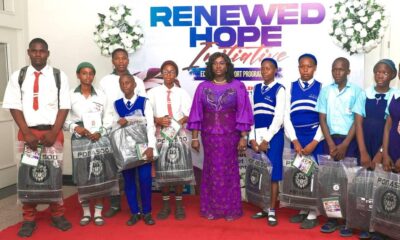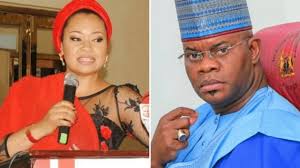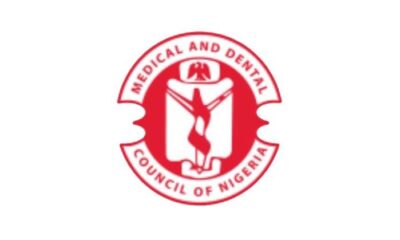Social/Kiddies
Youth Empowerment And Positive Change
It is imperative that empowerment and development in all spheres of life must be pursued by governments at all levels to realise the potentials of the youth.
For statistical purposes, the United Nations (UN) defines Youth as those persons between ages 15 and 24 years.
Currently, there are 1.2 billion young people known as youth globally. They will be accounting for 16 per cent of the global population by 2030, the target date for the Sustainable Development Goals (SDGs) that make up the 2030 Agenda.
Apparently, the number of youth is projected to have grown by 7 per cent to nearly 1.3 billion.
The UN has long recognised that the imagination, ideals and energy of young people are vital for the continuing development of the societies in which they live.
It also recognises the young people as rights- holders and has over the years promoted and facilitated transparency, international organisations and others towards young people.
This had led to the identification of fifteen fields of action by the International Community which include, education, employment, hunger and poverty, health, environment, substance abuse, juvenile justice, leisure- time activities, girls and young women and the full effective participation of youth in the life of society in decision making.
Youths globally are increasingly demanding more progressive opportunities and solutions in their societies. The need to address various challenges faced by young people such access to education; health and employment have any more pressing than ever.
Another recognition of young people’s wellbeing, participation and empowerment of key drivers of sustainable development and peace around the world by the UN was the adoption of the 2030 Agenda involving Member States and civil society, including youth organisations in the development of goals and targets.
The responsibility for finding solutions to the challenges affecting young people lies largely with governments, it must seek to create an environment in which youth from different socio- economic backgrounds enjoy access to youth rights, quality education, employment opportunities, health services and youth work, among others.
Today, the world is home to the largest population of young people in history- 1.2 billion people. Meanwhile, close to 90 per cent of the world’s youth live in developing countries where they make up a high proportion of the population.
According to United Nations Educational Scientific Cultural Organisation (UNESCO), young people are also facing major challenges in both the developed and developing world. While many developed countries have seen prospects for younger generations increase, many developing countries struggle to create enough employment to absorb their demographic youth bulge.
Across the world, today’s youth are three times more likely to be unemployed than other adults with the global youth employment rate standing at 13 per cent.
In Pakistan, young people comprise 36. 9 percent of their population, but their share as entrepreneurs is very less. High illiteracy, low education, lack of skills training and scarce facilities and resources are some of specific challenges young people encounter there.
India has its largest ever adolescent and youth population in the world. Around 66 per cent of the total population (more than 808 billion) is below the age of 35. According to United Nations Population Fund (UNFPA) projections, India will continue to have one of the youngest population in the world till 2030. However, unemployment is a major social issue in India.
According to reports, Africa’s population as a whole is very young, with 60 percent of the entire continent aged below 25, making it the youngest continent in the world, relation to its population makeup.
Subsequently, African youths are facing many challenges, including poverty, inadequate education, unemployment, and lack of opportunity. African youth are also at the risk of becoming victims of crime, HIV/ AIDS and other diseases.
One big challenge is that African youth are often not given the opportunity to learn and grow. This is often due to poverty or poor education. Most often, families do not have the money to send their children to school, thereby not giving the African youth the opportunity to learn component life skills.
Another challenge was that the African youth were often not given a voice. They are often too afraid to speak out because they do not have any power or representation. This means they are not able to change their situation or advocate for themselves.
From statistics, Nigeria has the largest population of youth in the world, with the median age of 18.1 years. About 70 percent of the population are under 30 and 42 percent are under the age 15.
As of August 2022, youths account for 70 per cent of the 217 million of Nigeria’s population which indicates 151million youths.
The size and youthfulness of the population can offer great potential to expand Nigeria’s capacity as the regional economic hub of Africa.
However, in Nigeria, youth face several challenges including unemployment, limited technical and vocational skills, limited inclusion in social and political space and lack of financing for ventures and businesses.
According to an African Research Review by Beatrice Ifeoma Ajufo, unemployment has become a major problem affecting the lives of Nigerian youth, causing increasing militancy, violent crimes, kidnapping, restiveness and socially delinquent behaviour.
“Youth unemployment is devastating to both the individual and the society as a whole both psychologically and economically”, she said.
A Nigerian Economist and President of the African Development Bank, Akinwumi Adesina stated that the youth are not the problem of Nigeria; the youth are the assets of Nigeria.
He also stated that Nigeria must embark on bolder measures to grow its youth into a well trained globally competitive workforce, noting that, “Nigerian government must invest and empower young people by offering innovative policies, this will guarantee their global competitiveness”.
The youth must be empowered to play a vital role in their own development as well as
in that of their communities, helping them to learn vital life-skills, develop knowledge on human rights and citizenship and to promote positive civic action is key.
To participate effectively, young people must be given the proper tools, such as information, education about and access to their civil rights.
Young people are a major human resource for development and key agents for social change, economic growth and technological innovation.
Participation in decision-making is a key priority area of the UN agenda on youth. In 1995, on the tenth anniversary of International Youth Year, the United Nations strengthened its commitment to young people by adopting the World Programme of Action for Youth (WPAY), an international strategy to more effectively address their problems and increase opportunities for participation in society.
The international community has reaffirmed its commitment to youth participation through UN General Assembly resolution 58/133, which reiterates the “importance of the full and effective participation of youth and youth organisations at the local, national, regional and international levels in promoting and implementing the World Programme of Action and in evaluating the progress achieved and the obstacles encountered in its implementation”. Subsequent resolutions have also dealt with policies and programmes involving youth as well as promoting youth participation in social and economic development.
This boils down to youth empowerment and helping the youth to succeed in all areas of their lives. It is the responsibility of all governments to assist the youth in any form.
Governments should involve youth by recognising their needs. Allowing them to participate in implementing youth programmes will enhance the empowerment and development process. This responsibility does not only fall on the government but on all of us.
By: Ibinabo Ogolo
Social/Kiddies
Youths’ Role In NationBuilding
Nation building is a dynamic process involving all segments of the locality, including the often-overlooked and undermined youth population. Youths represent a vast and often untapped resource for immediate and long-term community development efforts. They also provide an invaluable resource for the progress of any society as well as its development. As youths are brought into and connected with national issues and programmes (they have often times been ignored/excluded), they can participate actively and contribute to decision-making at multiple levels.
As youths are engaged in more sustained positive relationships with adults, other youths and national development programmes, apart from realising that they are valued citizens of their nations, such collaborations and participation may lead to skill enhancement, empowerments and confidence-building traits, which will help prepare them for active interest and involvement in nation-building (even in future).
The total population of those between the ages of 15 and 34 was about 30 million in the 1991 census, equivalent to one of every three Nigerians. It was projected that by the year 2000, the total population of this category of young person’s would be about 38 million (National Youth Policy, 2001). In 2006, a nation-wide population and housing census was conducted to update the records. It indicated that the youth profile in the Nigerian population has tremendously improved to 53 million (NPC, 2006).
Apart from the issue of numerical strength, global trend is towards emphasising the primacy of youth in the developmental process, with deliberate efforts by national governments to create conditions that will encourage youth to utilise their energies and resourcefulness for growth and sustainable development of their nations. It was in the light of this development that the Nigerian Youth Organisations in their memorandum to the last National Political Reform Conference maintained that:
“Nigerian youth must have a voice and must be given a greater say to contribute in the way he is governed and allowed to play greater role in leadership and governance so that at all times, he is properly equipped to assume the mantle of leadership which inevitably must come someday. (National Political Reform Conference 2005:15).
However, the prevailing conditions in much of the developing nations, especially Nigeria, have seriously extenuated the potentials of the youth as agents of social change. These challenges range from the economic and social to the cultural. The treacherous triangle of poverty, illiteracy and unemployment in which the bulk of Nigerian youths are currently trapped, has severally challenged their sensibility and has in the long run given rise to what sociologists term as attitudes of fatalism, resignation and acceptance of the situation (Heralambos, 2001). The persistence of these social problems has created an environment where youth are cheaply available for manipulation by self-seeking politicians. Poverty, illiteracy and unemployment are interrelated conditions that generate human needs and therefore constitute a state of deprivation.
As the youth continue to remain in this state, there is pent-up emotions and untapped energies. They provide cheap labour to execute the design of political gladiators and ethnic champions. In an apparent indictment of the Nigerian politicians, Togbolo (2006) observed, “they take advantage of the poverty-stricken nature of the country to exploit the people; politicians are fond of using the youth restive nature as a political strategy to have their way.”
According to Gribble (2010), “more than half of the world’s population under the age of 25 (between ages 15 and 24) are in greatest need of empowerment, those who are younger will quickly come of age and share these same needs. This segment of the population (15 to 24) is expected to continue growing faster than other segments for at least 20 more years” (Gribble, 2010). With the swelling wave of young people, access, empowerment and their engagement in nation-building becomes critical if they are to contribute effectively.
Uhunmwuangbo and Oghator (2013) suggested two (2) major motivations which have brought the converge of youth (young persons) into the policy agenda of national governments, thus fascinate and prioritised youth inclusion to the building process of any nation. According to them, the first is the global process of democratisation, beginning in Southern Europe, extending to Latin America, Asia and Africa, and more recently to Eastern Europe (Almond, 2004).
The second is the phenomenon of globalisation that has seriously challenged the capacity of nation-state to govern and which, according to Heady, et al, embodied a transformation of the spatial organisation of social relations and transaction (Heady, 1979). The combined effects of these global trends have confronted and dismantled authoritarian regimes in a decisive way, and at the same time rekindled the spirit of civil society in the political process (Suleiman, 2006).
The youth as an important component of the civil society is in the process of self rediscovery in an era characterised by the intense movement of the social forces of democratisation and globalisation. As they interact with other actors in the social system, the youth express their interest and needs, they relate with relevant political institutions and political processes to articulate their views and promote shared interest (Suleiman, 2006).
The role of education positioning and providing youth with access to effective engagement in national development which is a way of incorporating them in the decision-making process of the nation’s governance, nation-building activities where they are welcomed, with accurate and comprehensive information which will empower them to make healthy decisions.
There is no how the untapped capacities in youth can be tapped and utilised with an all-inclusive, participatory and synergy approach; thus, a suggestive dimension for involving the youth in nation-building. Youth participation, according to Cornwall (2010), refers to the involvement of youth in responsible, challenging action that meets genuine needs, with opportunities for planning and/or decision-making affecting others in an activity whose impact or consequence is extended to others. i.e outside or beyond the youth participants themselves. Rajani (1999) notes that, “it is only through participation that youth develop skills, build competencies, form aspirations, gain confidence and attain valuable resources.” This shows that youth participation therefore is a product and strategy of sustainable human development.
Youth comprise nearly 30 per cent of the world’s population. These large members of young people are an opportunity; an investment to their country. Youth participation in nation-building programmes/activities therefore is to: Strengthen young people’s abilities to meet their own subsistence needs; prevent and reduce vulnerabilities to economic, political and socially unstable environemnts; promote owership and sustainability of change interventions; help gain entry into target communites and build up trust and social cpaital.
Nigeria with over 140 million people and over fifty percent of youths cannot afford to lock out the youths if they must compete politically, technologically and scientifically in order to align itself with the sustainable development in Africa in particular and the developed world in general. Nigeria can build a strong and viable nation if and only if there is an existence of common values, beliefs, attitudes, effective leadership and a will to live together as a nation. Such transformations must allow every group (especially the youth population) to participate in the economic, political and the social spheres of the nation.
The following recommendations are discernibly based on the foregoing: Youth should be given the opportunity to develop their capacities thrugh balanced education and exposure. Skills acquisition and entrepreneurship will help reduce idleness among youths and keep them from being involved in crime and other activities that are counterproductive in nation-building. Youths should be made relevant and involved in leadership at different levels of government. We must moderate our demands on our youths and as well condition their behavior in line with our cultural values.
The youth of today must not fail this nation.
Concluded
Immanmuel Rohi
Rohi is a member of the Nigerian Youth Volunteers, Rivers State.
Social/Kiddies
‘How You Go Forward Is Your Responsibility’
What happened to you was not fair. You were merely a collateral damage on someone else’s war path, an innocent bystander, who got wrecked out of proximity.
We are all hurt by life, some of us from egregious wrongdoings, others by unprocessed pain and sidelined emotions. No matter the source, we are all handed a play of cards, and sometimes, they are not a winning hand.
Yet what we cannot forget is that even when we are not at fault, healing in the aftermath will always fall on us and instead of being burdened by this, we can actually learn to see it as a rare gift.
Healing is our responsibility because, if it is not an unfair circumstance it becomes an unlived life.
Healing is our responsibility because unprocessed pain gets transferred to everyone around us, and we are not going to allow what someone else did to us to become what we do to those we love.
Healing is our responsibility because we have this one life, this single shot to do something important.
Healing is our responsibility because if we want our lives to be different, sitting and waiting for someone else to make them so, will not actually change them. It will only make us dependent and bitter.
Healing is our responsibility because we have the power to heal ourselves, even if we have previously been led to believe we do not.
Healing is our responsibility because we are uncomfortable, and discomfort almost always signals a place in life in which we are slated to rise up and transform.
Healing is our responsibility because every great person you deeply admire began with every odd against them, and learned their inner power which had no match for the worst of what life could offer.
Healing is our responsibility because “healing” is actually not returning to how and who we were before, it is becoming someone we have never been, someone stronger, someone wiser, someone kinder.
When we heal, we step into the people we have always wanted to be. We also are not only able to metabolise the pain, we are able to effect real change in our lives, in our families, and in our communities. We are able to pursue our dreams more freely. We are able to handle whatever life throws at us, because we are self-efficient and assured. We are more willing to dare, risk, and dream of broader horizons, ones we never thought we would reach.
The thing is that when someone else does something wrong and it affects us, we often sit around waiting for them to take the pain away, as though they could come along and undo what has been done.
We fail to realise that in that hurt, we had the most important lessons of our lives and the fertile breeding ground upon which we can start to build everything we really want.
We are not meant to get through life unscathed.
We are not meant to get to the finish line unscarred, clean and bored.
Life hurts us all in different ways, but it is how we respond and who we become that determine whether a trauma becomes a tragedy, or the beginning of the story of how the victim became the hero.
Culled from January Nelson.
Social/Kiddies
COVID-19 In Babies And Children: Symptoms, Prevention
With the re-occurring traits of COVID – 19 in Nigeria, it is important that parents and gurdians take extra care of their children. Reports from Nigerian Centre for Disease Control (NCDC) has it that,as from 16th to18th July, 2022, 478 new cases were confirmed and two deaths recorded.
A paediatrician and infectious disease expert, Dr Aaron Milstone at the Johns Hopkins Children Centre, has advised that it is important for parents and children to take every possible safety precautions and understand all risks and symptoms related to COVID – 19.
Dr Milstone talked about COVID – 19 symptoms in children, how to keep babies and children safe,the risk infected children may lose to others and an overview of Multi system Inflammatory Syndrome in Children (MIS – C), an unknown but serious condition that may be related to the exposure of the virus.
He added that coronavirus variants, including the very contagious omicron variant has continued to spread, particularly in areas with low rates of community COVID – 19 vaccination among populations such as children under 5, who cannot yet be vaccinated.
According to him, “For children too young to be vaccinated, and adults who have not received Coronavirus vaccines,it is important to follow proven COVID -19 precautions such as mask wearing when in public,indoor places to reduce the chance of becoming infected with the coronavirus. “Indoor activities are riskier than outdoor activities, but risk can be reduced by masking, distancing, hand washing and improved ventilation. Parents and caregivers should understand that children infected with the coronavirus can develop complications requiring hospitalisation and can transmit the virus to others,” Milstone said.
He noted that, in rare cases,children infected with the coronavirus can develop a serious lung infection and become sick with COVID – 19 and deaths have occurred. That is why it is important to take precautions and prevent infection in children as well as adults.
“According to U. S. Centres for Disease Control and Prevention (CDC), it appears that women infected with coronavirus can in rare cases pass the disease to their babies. Adding that, infants can also become infected shortly after being born,and most newsborns who test positive for the coronavirus have mild symptoms or none at all and recover, but serious cases have occured.
Pregnant women should take extra precautions,including talking to their doctors about getting a COVID – 19 vaccine to avoid the coronavirus.
Milstone also noted that,there is no evidence that the virus causing COVID – 19 is present in breastmilk but because there is a possibility of spreading COVID – 19 during breastfeeding through respiratory droplets,it is very important for pregnant women to follow safety guidelines.
“Generally, COVID – 19 symptoms in children and babies are milder than those in adults and some infected children may not have any signs of being sick at all; the symptoms include cough,shortness of breath or difficulty in breathing, muscle or body aches,sore throat, loss of smell or taste, diarrhea, headache, new fatigue, nausea or vomiting and congestion or running nose . Fever and cough are common COVID – 19 symptoms in both adults and children, shortness of breath is more likely to be seen in adults . However, serious illness in children with COVID -19 is possible and parents should stay alert if their child is diagnosed with or shows signs of the disease”, Milstone said.
By: Ibinabo Ogolo
-
Politics3 days ago
Fubara’ll Leave Rivers Better Than Expected – LG Boss
-
Sports3 days ago
Eaglets Held In Pre-WAFU Friendly
-

 News11 hours ago
News11 hours agoFubara Expresses Satisfaction With National Council On Niger Delta
-

 Environment9 hours ago
Environment9 hours agoSouth East Businessmen Charge Governors On Rail, Security, Others
-

 News4 days ago
News4 days agoRHI: Lady Fubara Donates 50,000 Books To Public Schools In Rivers
-
Women3 days ago
The Wise Woman
-

 Nation13 hours ago
Nation13 hours agoYahaya Bello: Senator Hails EFCC’s Probe Of N80.2bn Fraud
-

 Niger Delta10 hours ago
Niger Delta10 hours agoMDCN Clears Asaba Specialist Hospital As Novena University Teaching Hospital

